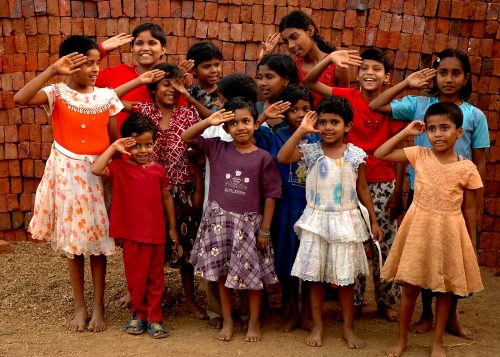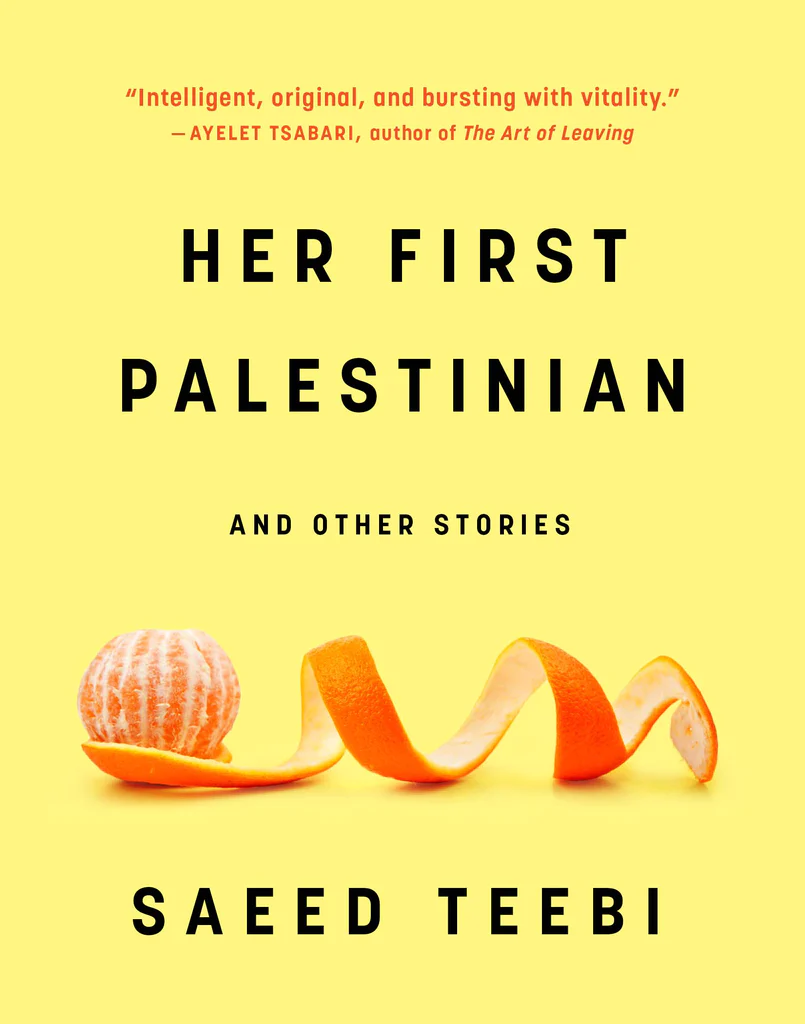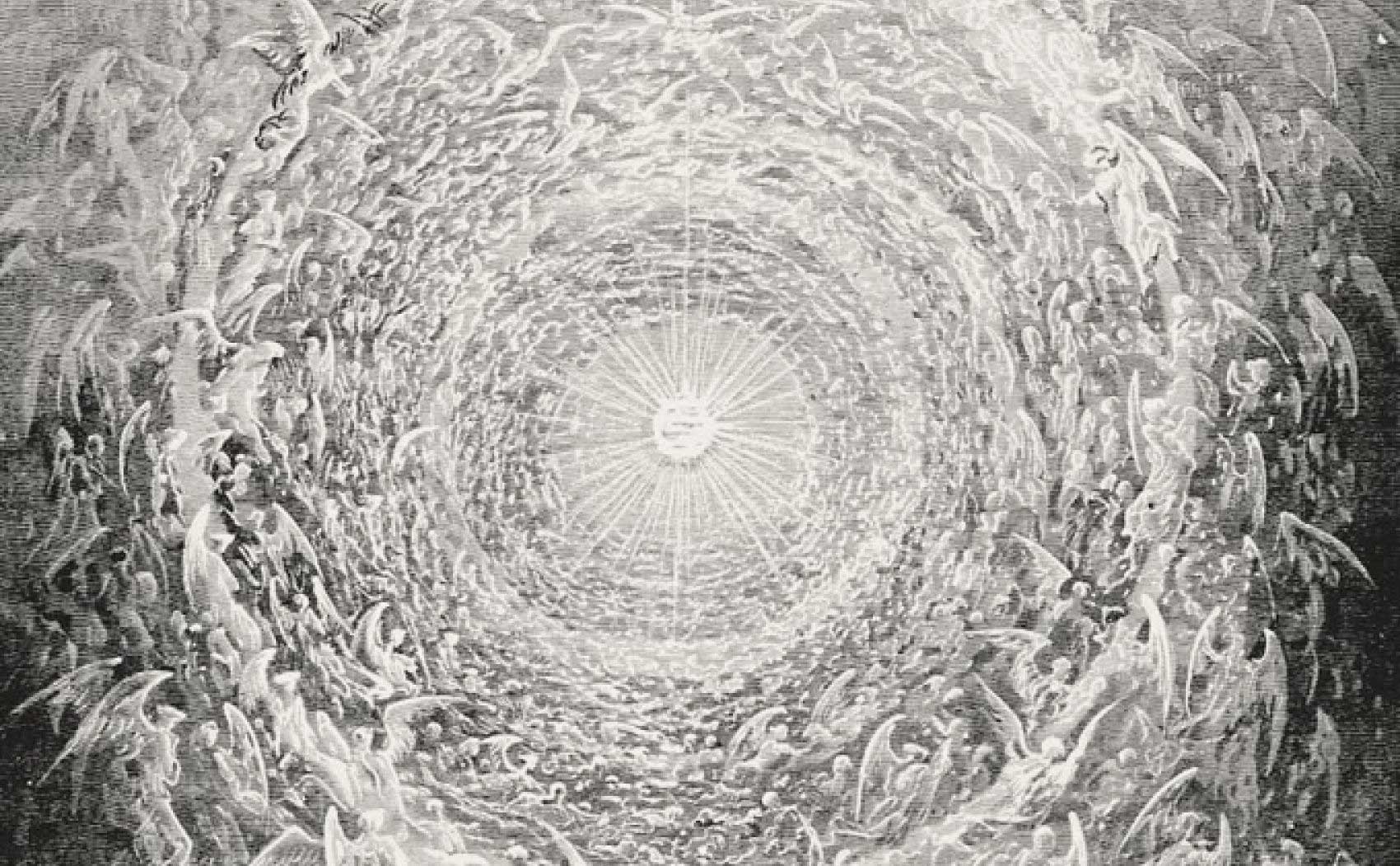
Photo by renu parkhi. Title: salaam””. Uploaded from Flickr and used under Creative Commons – Attribution, NonCommercial, NoDerivatives.
GREETINGS
[Children growing up in South Asian homes often have to choose from diverse forms of greetings, each one representing a set of beliefs or religious denomination. The common greeting, Namaste or Namaskar with hands folded, is used to address the majority, or the Hindu population. The Muslim greeting, Salaam or Aadab is accompanied by one’s fingers raised to one’s forehead. Sikhs, like the Hindus, also fold their hands, and repeat Sat Sri Akal or the much longer, Fateh. It is not unusual for children to have to confirm before with their parents so that the greeting used does not conflict with the beliefs of the one being greeted.]
Ananta never quite understood the greeting etiquette,
she knew she had to fold her hands,
and do so respectfully even when she felt no respect
for the one in front of her, or when she simply wanted
to stick out her tongue.
Instead she pressed her fingers, palms held together
folded, as part of herself, in acknowledgement,
communicating some kind of a bond.
They told her it was meant to seal a special contract
of shared beliefs.
But always from the younger to the older,
from the unknown to the known
from questions to their answers
from the wrong to the right.
She tried to think the way she thought she should think.
She tried to stop her hands from creating shadowy figures
that she liked to see fly across white walls,
amazed how with a few small flips she could make
her fingers turn into bears, rabbits, butterflies and deer.
Instead she stood impatiently with folded hands,
more apart now than together,
waiting to be noticed,
for the pleasantries to be done.
And then she had to decide who would it be this time?
What would be the correct way to greet?
Sometimes it was easy to tell, but then, there were times
when it was impossible.
Would it be Namaste or Namaskar like most times?
Would it be Sat Sri Akal?
Would it be the hand held against her bent forehead –
greeting her father said was just for his special friend and family?
Or would it be the long Fateh over which she knew she would stumble
for it seldom came out right?
……………………………………….
GRIEF – A Sonnet
You told me he had turned into a star
His spirit had flown to meet his Maker
Happy in a world where the sun never sets.
You said it was all for the best
It would hurt, but just for a while
Until the leaves turned and the snow was on the ground.
You said life would move on
Butterflies would return as would the dragonflies
I believed you and waited for the pain to go away.
I heard your answers to my questions, convinced
You knew how to find everyone that I had lost
I liked to believe when you said that nothing ever dies.
Now you have flown away as well, just as he did.
And I am left searching for souls among the stars and the leaves.
………………………………………….
Kabir
[Kabir, a 16th century poet and religious reformer from India, is said to have been born as a Brahmin, and brought up as a Muslim. Kabir spent his life condemning rituals and discriminatory practices in Hinduism and Islam – the two principal religions at the time. It was a never-ending strife of religious beliefs. As a child, caste-less and shunned, he was banned from entering either a mosque or a temple. However, following his death, Hindus and Muslims both claimed him as one of their own, and fought over whether his body should be cremated or buried. Kabir had made his point: “How is it,” he asked, “that people who worship their creator in mosques or before stone idols in temples, do not hesitate to hurt those made by this creator?”]
Kabir cries now
For the world has lost its mind
An age is spent in stringing beads
In coining new names for the Creator
While death rains down over those who have nowhere to hide.
Kabir cries now
For senseless differences
For the skin that sets us apart
For gods that no longer seem to matter
And for new gods that matter even less.
Kabir cries for he is being summoned, he cannot be heard
Above the thunder of words from robotic armies.
How can I find peace in heaven, he cries,
When there is no peace among those I leave behind?
……………………………………………………………………………………………………………………










